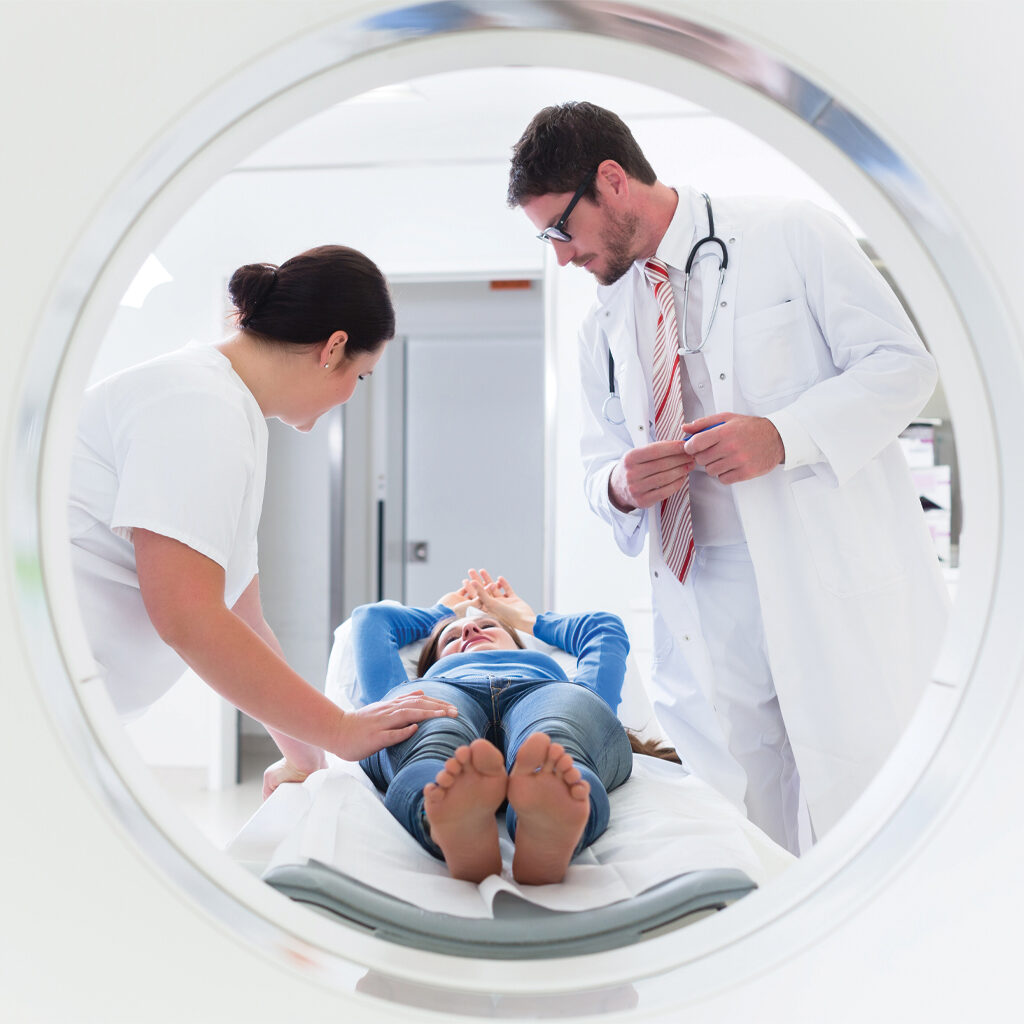CT (Computed Tomography)
What is a CT Scan?
A CT or “CAT” scan is an advanced imaging test that combines multiple x-ray images into a series of two-dimensional “slices” of human anatomy. The x-rays are obtained by a special machine that rotates around the patient and achieves image clarity that is many times more sensitive than a simple x-ray. A radiologist reviews these slices to precisely identify—or rule out—disease and other health conditions.
What is a CT scan used for?
CT is most often used to show soft tissues within the body, such as the brain and organs within the chest and abdomen, as well as evaluate dense tissue, like bone. Because it is so fast and accurate, a CT scan is the first test a patient may undergo after a traumatic injury. It is also used to diagnose cancer, identify coronary blockages, and guide biopsies.
What should I expect during a CT scan?
You will be asked to lie on a comfortable bed that is then positioned inside the machine. A CT scanner represents a donut with a wide opening. It is not confining, and most scans are completed in a short amount of time.
There is whirring and clicking in the CT unit while the detector rotates around the patient and takes images. If special instructions are needed (such as holding your breath for a short period of time), the technologist will instruct you through a two-way intercom. For some tests, an iodinated intravenous contrast injection is required to obtain a clearer image.
How do I prepare for a CT scan?
In most cases, no special preparation is required before a CT test. Before your test examination, please inform the technologist if you:
- Are pregnant
- Have renal (kidney) disease
- Have had a previous adverse reaction to iodine contrast injection
- Have asthma and use an inhaler two or more times per day
- Are diabetic and taking glucophage
If your test requires the injection of a contrast agent, the technologist will explain the procedure in greater detail.

